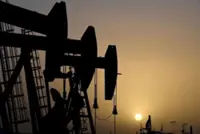PETALING JAYA: From the outside, there is nothing unusual about the wooden shack hidden within a plantation in Sungai Bakap, Penang.
However, observations by officials from the Domestic Trade and Cost of Living Ministry (KPDN) suggest that this is likely a facility involved in the illicit decanting of subsidised liquefied petroleum gas (LPG) for sale to the commercial sector, which is not entitled to such subsidies.
ALSO READ: Nearly 6,000kg of subsidised LPG seized
On July 2 last year, enforcers decided to swing into action and raided the place at 7am.
There, they found 58 units of 50kg LPG cylinders and 203 units of subsidised 14kg cylinders.
However, the perpetrators managed to flee before they could be apprehended.
The above is a typical scenario encountered by KPDN as they battle syndicates that are systematically exploiting the country’s subsidised cooking gas meant for households.
These groups decant LPG in 14kg cylinders to fill up 50kg cylinders, which are then resold to commercial or industrial users who are not entitled to subsidised LPG.
Subsidised LPG comes at a government-controlled price of RM1.90 per kg (or RM26.60 per 14kg cylinder), while non-subsidised LPG retails at RM4.40 per kg, or RM220 per 50kg cylinder.
After consolidating the contents of 14kg cylinders into 50kg cylinders, the latter is resold at RM190 each, earning the syndicate a gross margin of 100%, while also undercutting the price offered by legitimate channels that sell them at RM220.
With thousands of such cylinders being siphoned off and repackaged, government losses could easily reach millions of ringgit each year, said KPDN enforcement director-general Datuk Azman Adam (pic).

He added that “harvesting” of the price disparity between subsidised and non-subsidised LPG has been going on for quite some time.
“They operate primarily in remote areas such as oil palm plantations. Some activities are also conducted in industrial zones. This allows them to monitor enforcement teams from a distance, complicating enforcement operations.
“They can operate anytime and have no specific time or day,” he told The Star when asked about the syndicates’ modus operandi.
The only certainty is that these syndicates relocate frequently to make tracking and aerial surveillance difficult, and the possibility of collusion with other parties also can’t be ruled out.
To combat such leakages, Azman said the ministry has launched Ops Tiris to tackle the misuse of subsidised goods including RON95 petrol, palm-based cooking oil sold in 1kg packets, wheat flour and refined white sugar.
“This is part of our Kita Gempur initiative launched in October 2024 to combat manipulation and leakage in controlled and subsidised goods,” he said.
In 2024, Azman said a total of 203 investigation papers were opened in relation to illegal LPG decanters, resulting in 10 arrests and RM228,850 in fines.
“This year, 63 investigations have led to 12 arrests, with total seizures valued at RM1.64mil,” he said.
On LPG purchases, Azman urged consumers to uphold safety even if financial savings are important.
Azman also issued a stern warning to licence holders (LPG wholesalers or distributors) about the consequences of engaging in illegal practices, and urged the community to be the KPDN’s eyes and ears in combating these illegal activities.
“Members of the public can report any suspicious activities through various channels such as WhatsApp, the e-Aduan portal, call centre or the Ez ADU KPDN app to us,” he said.
When contacted, Fire and Rescue Department director-general Datuk Nor Hisham Mohammad said facilities used by syndicates to decant the gas illegally are at risk of fires and explosions.
Decanting LPG is the act of transferring LPG from one cylinder to another, and is generally not recommended due to the risk of gas escaping, leading to a fire or an explosion when a flammable and potentially explosive environment is created.
Nor Hisham added that the equipment used by illicit operators are also not inspected by the relevant authorities.
The quality of refilling the cylinders with LPG is also a matter of concern as improperly filled or handled canisters are at a higher risk of accidents when used.
There is also the risk of overfilling the cylinder, which can be dangerous because the expansion of the LPG (when it heats up) can cause the cylinder to rupture.





